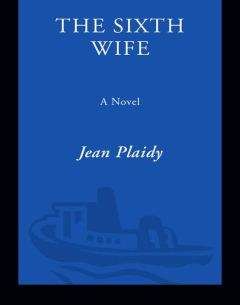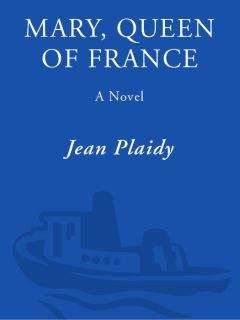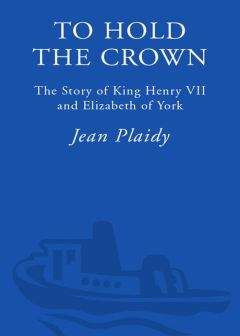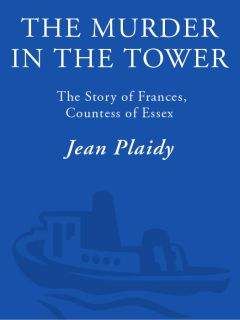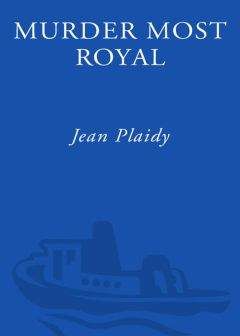John Creasey - Kill The Toff
A sound outside made him break off: the click of a gate, closing. Rollison glanced out of the window. Fryer said: “What’s that?” and Waleski went quickly to the window and stared out.
It was Mrs Begbie with a shopping-basket over her arm. She made sure that the gate was secure, then turned and came slowly up the path, looking right and left, as if to admire the few bright flowers and the pleasant country scene.
CHAPTER SEVENTEEN
A Killing
Waleski kept close to the side of the window and hissed. “Wait at the front door, Fryer. Let her come in, then bash her. Don’t waste any time.”
He turned and covered Rollison and Clarissa. Fryer slipped out of the room without making a sound. Mrs Begbie, wearing a black straw hat, her old lined face lit up by the morning sun and her black cotton dress sprigged with little mauve flowers, paused again to look at the antirrhinums and pansies which grew in a small bed, half-way along the path. She bent down slowly to smell the scent.
Waleski said: if you open your mouth, I’ll put a bullet inside it.”
Clarissa said: “Roily, you must—”
“Shut up!” Waleski growled.
“Roily, it doesn’t make any difference whether we’re shot now or in five minutes.”
Waleski said thinly: if you open your trap again I’ll put a bullet right into it. Remember.”
“It won’t help to warn her,” Rollison said quietly. “She couldn’t run away, could she? Hold tight, Clarissa.”
She looked at him reproachfully, almost contemptuously, and then moved swiftly, grabbing a vase from the nearest table. Rollison snatched it away from her, tossed it into a chair and held her arms tightly. Her cheek was close to his and he whispered: “We’ll make it.”
Waleski said: “You’ve got some sense, Rollison.”
Clarissa moved away from Rollison, disbelieving, her face drained of colour—and then she started. Rollison saw why, out of the corner of his eye. A hand appeared at the window and he knew that it was Snub’s hand. He saw the top of Snub’s head, knew that he was pulling himself up by the window-sill. Mrs Begbie, not looking towards the cottage, began to pick some flowers and place them carefully on top of her shopping-basket.
Snub’s other hand appeared with a gun in it.
His face was grey, his eyes half-closed, he swayed on his feet; but he made no sound. Rollison held Clarissa’s arm tightly. Waleski watched them narrowly, ears strained for the approach of the old woman’s footsteps.
Then he glanced towards the window.
Rollison roared: “Get him!”
The meaningless words were to startle Fryer. Rollison leapt forward. Waleski was caught on the turn—and Snub fired. A hole leapt into Waleski’s forehead, over the right eye. He raised his arms and opened his mouth wide. As he fell, Rollison snatched his gun away. Fryer burst into the room and a bullet from Rollison sent the gun flying out of his hand. The roar of the shot made pictures and vases rattle and shake.
Snub swayed again and fell out of sight.
A single word sounded clearly from the garden path.
“Well!” exclaimed Mrs Begbie.
* * *
Rollison carried Snub into the room and put him in an easy-chair opposite Fryer, who WAS unconscious from a blow on the side of the head. Rollison glanced at the man, to make sure that he was still out, then gave his whole attention to Snub.
Snub’s eyes were half-open and he was grinning.
“Where did they get you, Snub?”
Snub licked his lips and raised a hand to his chest. Rollison drew aside the coat. Blood was spreading slowly over Snub’s shirt from a wound rather low down and on the right-hand side; not likely to be fatal. Snub raised his hand again and gritted his teeth; Rollison saw the ugly wound at the back of his head, not caused by a bullet but by some heavy weapon. Blood matted the curly hair.
“You’ll be all right, old chap. Wonderful job.”
Snub grinned and closed his eyes.
Clarissa came in with Mrs Begbie close behind her, a flustered rather than frightened woman. She drew back when she saw two unconscious men. “Well!”
Clarissa turned round sharply and said: “Please hurry with the hot water.” She looked at Rollison as the old woman went out. “How is Snub?”
“Not too good. Take the car and telephone the police, will you? Ask for an ambulance and a police surgeon and utter the magic words, “attempted murder”.”
“The—police?”
“All safe now,” said Rollison. “I’d have taken you straight to Scotland Yard, anyhow—the quicker your story is off your chest the better. Grice won’t ask for more trouble; he’ll believe the story of two Mellors now.”
“You ought to know,” she said. “There’ll be a telephone in the village. I won’t be long.”
She hurried out, soon replaced by Mrs Begbie, carrying towels and a bowl of hot water. She put them down and went out, returning with a can of cold water and some cotton-wool. Rollison had opened Snub’s shirt and blood trickled down the pale skin of his torso. He began to dab at it and Mrs Begbie snorted:
“Let me do that.”
“Better do his head first,” Rollison said.
“I haven’t been a trained nurse all my life for nothing, young man. Get out of my way.”
Rollison said: “Bless you!” and smiled at her—and saw Fryer’s eyelids flutter. He moved across, gripped Fryer’s coat-lapels, dragged him out of the chair and out of the room into the tiny kitchen. He dumped him down on an old Windsor chair, scooped a cupful of cold water out of a pail standing by the brick copper and tossed it into the man’s face. Fryer gasped and straightened up, even tried to lift his injured right hand.
Rollison said: “Now you’re going to talk fast.”
Fryer gabbled: “Sure, sure, I’ll tell you all I know. Sure!”
* * *
Grice sat behind his large desk at New Scotland Yard, listening carefully and without interruption. Clarissa, sitting on his right, saw the ugly red scar on his face which would have disfigured him altogether had it been on the cheek and nose; the wound which had left that scar must almost have blinded him. Rollison sat in an easy-chair, his legs stretched out, his voice quiet and casual. He told Grice what Clarissa had told him: all about the investigations and his suspicions; everything that he had guessed and that Waleski had confirmed in that careless moment when he had thought himself quite safe.
Snub was in Woking Hospital; Waleski in the mortuary attached to Cannon Row Police Station, just across the courtyard of Scotland Yard. Fryer was in a police cell, not far from the mortuary, and Mellor was still at the cottage with detectives guarding him and Mrs Begbie shrilly insistent that he should not be moved that day.
Rollison paused, to take a sip of water from a glass on the desk.
“Feeling happier, Bill?”
“I may be when I’ve heard it all.”
“There isn’t a great deal more. Let’s sum up as far as I’ve gone shall we? You’ll agree there was justification for keeping Mellor away from you? I mean my Mellor, who was not the man you really wanted.”
Grice said: “Legally, you’d get away with it. I think you were a damned fool not to tell me the whole story.”
“Wrong, Bill. Once you’d got Mellor, Waleski and his friends would have faded right out of the picture for a long time. While I had him they were on the go, sticking their necks right out.”
“You’d still say you were right if you could talk after death,” said Grice dryly.
“There had to be risks.”
Grice shrugged. “I don’t think anyone is going to prefer a charge, so forget it. You haven’t told me what Fryer told you.”
“He fitted in some odds and ends,” Rollison said quietly. “Mellor, the real murderer, is still in hiding. Fryer swears that he doesn’t know where and thinks he’s out of the country. Fryer’s confirmed that Dimond was in the racket. Although Mellor killed his brother, Dimond stayed loyal. You can guess what he’s like from that. He exported a lot of goods abroad and smuggled the proceeds of the Mellor robberies out with his goods. Waleski found the foreign markets. I told the Middlesex police about Dimond—I hope he’s been picked up.”
“He’s being brought in now,” Grice said. “What else?”
“Fryer knows that Sir Frederick Arden is involved somewhere; just how, he swears he doesn’t know. He thinks that one of the staff at Pulham Gate was fiddling with his medicine—giving him diluted doses, which would explain his worsening condition but wouldn’t rouse much suspicion. Waleski was also working with a housekeeper at Arden Lodge; but what the housekeeper was doing for him he doesn’t know. I told the Woking police—”
“The housekeeper skipped. There was a third man at the cottage who also slipped away after the shooting. He presumably telephoned the housekeeper and another servant in London—they’ve both gone. Weil pick ‘em up soon.” Grice spoke with all the confidence of a man backed by the massive machinery of Scotland Yard. “How much are you keeping back?”
“Nothing at all. You’ll find that Fryer will talk as freely to you as he did to me. He’s just longing to be asked to turn King’s Evidence. Oh—he was the man who attacked Judith Lome, of course, and who took part with Waleski in that shindy on the Mile End Road. Sorry about that.”
Grice said: “So you ought to be. Miss Arden, whatever the temptation, lying to a police officer is not only illegal, it’s foolish. I suppose you got rid of the gun you used and fired a few shots out of the one in your pocket, Roily? The bullets we found didn’t come from the gun I took from you.”
“Fancy that!” said Rollison.
“I told you to look for rabbits,” murmured Clarissa. “I’m glad you still think there’s something funny about this.” Grice glowered at her.
“Anyone who can be facetious after today’s packet of trouble and after missing lunch ought to be mentioned in dispatches,” said Rollison. “Bill, there are two urgent jobs. Find out why Sir Frederick Arden figures in this business; and find the real Mellor. Any ideas?”
“We’ll learn all about them both before long,” Grice said slowly. “I suppose you realise that things may not be as simple as you think, Roily. Your Mellor may be quite innocent but may also be involved. How did he come to work for the Dimond gang? Does that tie up with the Arden connection?”
“It could.”
“So you’re not going to talk?”
“I’ve nothing more to talk about,” Rollison said. Grice grunted, i hope I needn’t give you any more warnings. You’ve gone about as far as I dare let you go—you’d probably be better under restraint. Miss Arden” —he turned to Clarissa abruptly— ‘are you prepared to make a statement as to what you know, sign it, and affirm it under oath?”
“Yes.”
“I’d like you to sign it before you leave. I shall want a statement from you, Roily, too. You’d better dictate it.”
“After lunch,” pleaded Rollison.
“No. Now. Unless you care to come to the canteen—”
“Heaven forbid!” shuddered Rollison.
A detective-sergeant came in, was told to take Miss Arden to another room and write out her statement, and Clarissa was led off. Grice and Rollison sat looking at each other, Grice sceptical, Rollison mildly amused; and it was Grice who said abruptly:
“It’s not over by a long way.”
“It won’t be while Killer Mellor’s still alive.”
“Do you think Sir Frederick Arden is criminally involved?”
“He could be.”
“Do you suspect anyone else?”
“Have a guess,” invited Rollison.
Grice stood up and went to the window, overlooking the Embankment and the sluggish Thames. Plane trees, growing from the pavement, spread their branches until some almost touched the window of the office. A constant rumble of traffic and clatter of trams came through the open window.
Grice said: “Sometimes you’re too deep, Roily, sometimes nearly simple. You’ve a big weakness. Clarissa Arden is a beauty and she seems to have you under her thumb.”
“Ah,” said Rollison.
“You’ve told her practically everything you know—you had done so before she came here or I wouldn’t have let her stay. Are you sure she can be trusted?”
“No,” said Rollison.
“Then why trust her?”
“The sweeter the bait, the bigger the bite.
Bill, I’d like you to set your financial wizards at work and find out how much she inherited, whether she’s had any heavy losses on the Stock Exchange or anywhere, what people she mixes with apart from the Smart Set, how well she really knows Dimond and knew Waleski. Then, if you’ve really a kind heart, tell me what you find out. You might get to work on Sir Frederick Arden, too. I don’t think the old boy has told me everything and he’s very anxious I should suspect Clarissa of leading a murky life. Feel happier?”
“I wish I knew what you really think,” said Grice.
“I wish I knew myself.”
“Have you any reason to believe that anyone else, besides Arden, is in danger?”
“I don’t know of any logical reason why they should be. But is Killer Mellor logical? Will he just accept his conge and retire gracefully or will he hit back? If he hits, who will he go for? Answer: Anyone who’s responsible for his failure. How does that sound?”
Grice said grimly: “Yes, you’re on the spot.”
“And not only me. Clarissa, possibly; the real Mellor.”
“That brings a leading question,” Grice said. “Are you quite sure that the man you found is the real Mellor? Could there be a mistake in the identity? Is the man we want really the missing son?”
“Doing well, aren’t we?” asked Rollison. i don’t think there’s been a mistake. I do think that the Arden establishment is much more deeply involved than we’re supposed to know. Suspicion switches, as they say, from the old man to Clarissa. There’s even a third possibility: another relative whom we haven’t yet heard about.”
“What’s your bet?” asked Grice. “The unknown, the old man, or Clarissa?”
“I wouldn’t risk my money,” Rollison said. “But if I were you, I’d keep a watchful eye on my Mellor, his Judith, Clarissa and Sir Frederick. And I shouldn’t lose any time.”
CHAPTER EIGHTEEN
Word From Ebbutt
“Now what are you going to do?” Rollison asked Clarissa a little later. “Go home and make peace with your uncle or come for a drive with me?”
“Come for a drive with you.”
“I ought to break the news that we shan’t be alone.”
“I was afraid of that,” said Clarissa. “Grice and my uncle made you nervous. Who are you going to bring for a bodyguard?”
“You’ll see.”
The Rolls-Bentley, green and shining in a burst of bright sunshine, stood outside Botts, where Rollison had taken Clarissa for a meal half-way between luncheon and dinner. The chef, although officially off-duty, had fed them well. He had been delighted to see Rollison and as delighted to see Miss Arden.
